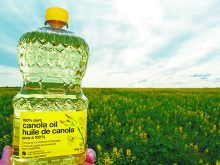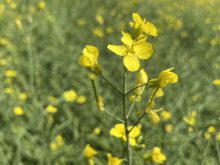Provincial and federal governments kick in $2.9 million to support an engineering design study for the $1.9 billion project
Douglas Cole grew up in Calgary and lives in Calgary.
But he likes a quote by a former member of the Edmonton Oilers.
“As Wayne Gretzky used to say, ‘you don’t skate to where the puck is, you skate to where it’s going to be.’ ”
Cole has adopted that philosophy for his current project, a sustainable aviation fuel production plant in Portage la Prairie, Man.
Cole is president and chief executive officer of Azure Sustainable Fuels, a new company that plans to build the facility, which could cost $1.9 billion to construct and would annually produce one billion litres of sustainable aviation fuel.
Read Also

Saskatchewan puts crown land auction on hold
Auctions of Saskatchewan crown lease land are once again on hold.
It is a “drop-in” fuel, which performs similarly to conventional jet fuel.
The synthetic kerosene aviation jet fuel is derived from a range of biomass, such as vegetable oils and animal fats, forest or agricultural residues, and industrial waste gasses, said Advanced Biofuels Canada, a lobby group.
The feedstocks for the proposed sustainable aviation fuel plant in Portage la Prairie would likely be canola and soybean oil.
The current market for the fuel is tiny in Canada.
It’s limited to a few test flights to prove that it can replace traditional jet fuel.
But Cole said he believes the market for sustainable aviation fuel is poised to skyrocket.
That’s why Azure is “skating” in that direction.
“We believe there will be changes in demand…. We believe the market will be there.”
The Manitoba and federal governments also believe in Cole’s vision.
On June 20, the two levels of government announced $2.9 million in funding for Azure to support an engineering design study for a proposed plant.
“The establishment of a sustainable aviation fuel facility would bring an exciting development for Portage la Prairie and a significant gain for the economic vibrancy of this region,” said Manitoba agriculture minister Derek Johnson. “(This) is poised to add value to Manitoba crops and benefit farmers as well as this area of our province.”
Azure Sustainable Fuels is a new company, but Cole isn’t new to the energy industry.
He has a chemical engineering degree from the University of Calgary and has been in the petroleum business since the 1980s. Along the way, he started three junior oil and gas companies and in 2017, he founded True North Renewable Fuels.
The company was planning to build a renewable diesel plant in Regina, but Federated Co-op purchased True North’s assets and took over the project in the spring of 2021.
In January 2022, Federated Co-op and AGT Foods committed to build a renewable diesel plant and a canola crushing facility in Regina, at a cost of $2 billion.
Cole could have walked away from the energy sector after concluding his work with Federated Co-op, but he founded Azure because he likes “developing projects” and he wants to make a difference.
“It’s a challenge. It’s interesting work,” he said, adding Canada has a long history of exporting raw materials and importing finished products.
“The phrase, hewers of wood and drawers of water, has been around for a long, long time…. I want to change that. I think this is an opportunity for Canada to actually change that.”
The market for sustainable aviation fuel may be small in Canada, but not for long.
Last year, British Columbia passed the Low Carbon Fuels Act, which will create a market for sustainable jet fuel.
“The (energy) ministry intends for the jet fuel category to be subject to carbon intensity reduction requirements starting Jan. 1, 2024, and renewable fuel content requirements starting Jan. 1, 2028,” says a B.C. government document.
As well, last September the federal government released Canada’s Aviation Climate Action Plan.
The document sets a goal of 10 percent sustainable aviation fuel use by 2030.
In 2019, Canada’s aviation sector used more than eight billion litres of jet fuel. That could climb to 10.6 billion litres by 2030.


















